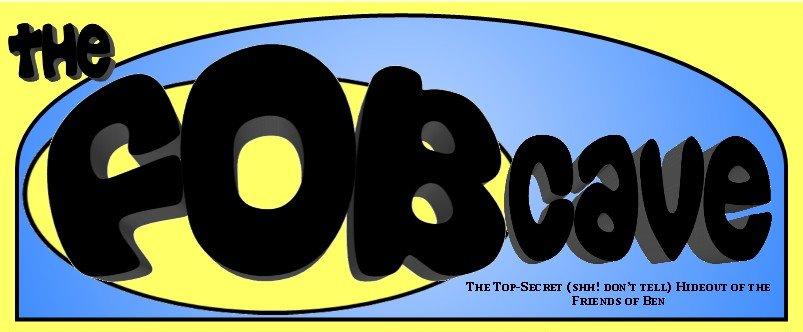Tyler goes on to talk of the "revisionary proclivity" of the Fob Bible, attributing this to the fact that all the writers are Mormon, part of "a Christian religious heritage founded on a restorationist theology." Though I don't consider myself Mormon anymore, I like Tyler's take on this idea, and I'm happy to attribute any revisionary proclivities I might have to my Mormon heritage. It makes sense. But don't take my word for it; go read Tyler's review. As Theric points out in the comments, the review itself is a work of art, and we don't just say that because he says nice things about us. (But it doesn't hurt.)The Fob Bible, an anthology of stories, poems, closet drama, and email correspondence, positions itself within this general tradition of enhanced, altar-type, family Bibles, though with a significant revisionary difference: instead of constructing a new apparatus intended to direct our study of the scriptures in specific, predetermined ways or offering a new translation of a text that has already been translated repeatedly, the contributors to The Fob Bible have re-imagined well-worn Old Testament stories, revisiting Eden and its surrounds, the Deluge, the final moments of Sodom and Gomorrah, Abraham and Isaac’s ascent to Moriah’s pinnacle, the relationship between Isaac and Esau and Esau and Jacob, Joseph’s—then Moses’—journey into Egypt, Balaam’s bond with his ass, Samson, Solomon, Rehoboam, Naaman, Ezra, Job, Jeremiah, Daniel, and, of course, Jonah and the giant fish.
These postmodern visitations reshape each historically privileged narrative and narrative voice from the perspective of the less-privileged story, the unheard voice, offering new characters—or familiar characters recast in new molds—the opportunity to speak and, in the process, to influence the world “in exciting new ways.” For instance, Danny Nelson gives voice to Job’s wife, a woman unnamed in the canon whose scriptural screen time amounts to one line of dialogue and two obscure references, three slight appearances from which she is sometimes judged to be “bitter, angry, and wrong.” Yet, Nelson gives the woman a name, “Hadasa,” the whole cast of human emotions, and a book of her own, a space in which she (or Nelson’s version thereof) can flesh out her poignant account of Job’s tale, which is, in the end, their story and deserves to be told in her voice, too.
Friday, June 19, 2009
Even More Fob Bible Goodness
Tyler Chadwick at A Motley Vision wrote a very nice review of the Fob Bible. A commenter noted that Tyler's review did a much better job of explaining what the Fob Bible is than anything she'd seen previously, so if any of you have been wondering what exactly is this thing Mr. Fob keeps trying to sell you, I'll let Tyler explain:

Ok, so I read Tyler's review and now I very much would enjoy a copy of the FOB Bible.
ReplyDeleteWhich fine selected store may one acquire "revisionist" delight?
and on second note, I am glad to hear the move went well. The next time I am in that fabled "Happy Valley" I shall give you a ring.
Until then...
aahhrrgg! obviously a third read is required before i hit the submit button.
ReplyDeleteplease insert the word "this" into the appropriate line.
Thank you.
.
ReplyDeleteAny store can get it. Just tell them it's ISBN is 0-9817696-9-1.
Hi, Sean! Yes, do give us a ring next time you're in the valley. As Berkeley Ward says, you can request the book at any bookshop, or you can order online from B10 Mediaworx (the publisher) or from Amazon.
ReplyDeleteThis reminds me, when I asked to take a look at it the other day, I got distracted and didn't finish looking. Remind me next time! I knew there was something else I was going to ask you about!
ReplyDeleteAnd congrats on the cool review. Do they keep you posted on how many have sold so far?
I don't know how many have sold--I suspect not a whole lot, but good reviews can only help.
ReplyDelete